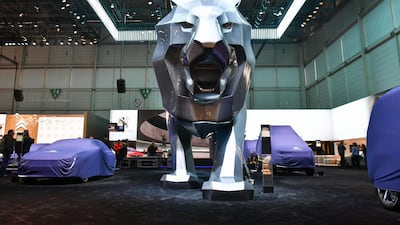French car maker PSA, the group behind Peugeot, Citroën and DS makes and the second-largest car manufacturer in Europe, plans for its entire range to be electrified by 2025.
To do so, PSA signed a joint venture with Japanese manufacturer of electric motors Nidec, to create “Nidec-PSA emotors”. PSA and Nidec will invest €220 million (Dh941.5m) to set-up the JV.
"This will support the electrification push, as 100 per cent of Groupe PSA vehicle range will include an electrified offering by 2025, especially that electric vehicles are projected to make up 16 per cent of all car sales by then," PSA said.
The French firm pointed to the Arabia Gulf region as being a pioneer in the electrification of private and public transport.
"Government bodies in some countries such as the UAE have already started paving the way to the acquisition of zero-carbon electric cars by launching new incentives that make the transition from fossil-fuel powered cars to electric easier including green bank loans, green insurance plans, attractive EV car prices and green registration of vehicles," it said, adding that the firm is currently hot-weather testing its electric range for the region and is expected to be on the road by 2020.
Forty engineers have already been recruited and joined the JV headquarters in Carrières sous Poissy, near Paris, PSA said. By end of summer, 30 more are expected to join this site where a dedicated R&D area has been developed.
_______________
Read more:
Six Chinese cities where an electric car makes more sense than petrol
Mazda joins the all-electric vehicle revolution
_______________
"They will design new traction electric motors to be produced in Tremery plant in France, and integrated in Mild-hybrid (“MHEV”), Electric Vehicles (“EV”) and Plug-in Hybrid (“PHEV”) vehicles," PSA said.
PSA is not the first traditional car maker to announce an all electrified fleet is on the way. Volvo will become the first major car manufacturer to go all electric, with the Swedish company saying last year that every new car in its range will have an electric power train available from 2019.
In the quest to build electric vehicles at scale, a rift has emerged as the world's biggest car makers adopt two fundamentally different approaches to production, according to the Financial Times.
Some, like GM, VW and Toyota, are following Tesla with electric-only architecture in which the underpinnings of a car resemble a skateboard, with the battery, wheels and axles forming a common platform for a myriad designs to go on top. These companies insist that designing electric cars from the ground up will produce superior designs and enable them to optimise space.
Others such as BMW and Jaguar Land Rover are emphasising flexible platforms that can accommodate conventional, hybrid or electric engines. The flexible option should be cheaper and could better respond to different levels of electric car take-up around the world, according to the FT.

